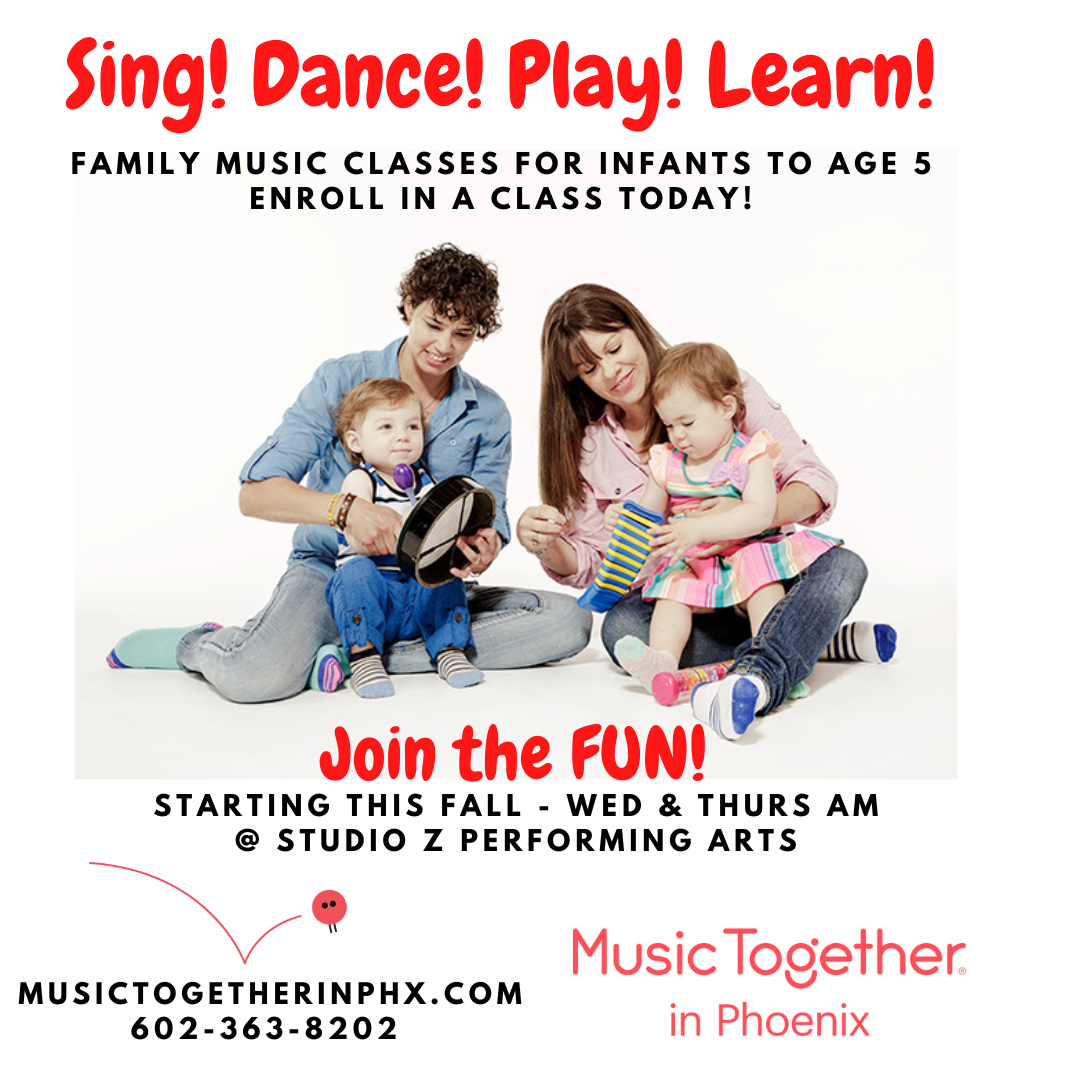If you’ve ever seen a little child bouncing their tushie with wild abandon to the
background muzak at the grocery store, you will mostly likely agree that children
and music are a great match! Children may be drawn to music for many reasons:
music can be silly or somber; it can be energizing or tranquilizing; mostly, music
can reach a deeper part of us where there are no words. Children and music go
together like . . . bread & butter, mac & cheese, peanut butter & jelly, or sushi &saki! Children love music and music is so great for a child’s development.
All children are musical. We are born with the abilities to sing and dance just as weare born with the abilities to walk and talk, count and read. When my first baby wasborn, I had a hard time believing that even infants arrive ready and wired for music!
My little baby could not tap her toes or sing Twinkle Twinkle yet, however it was
very obvious that her binky showed a rhythmic response, with her sucking getting
faster or slower when daddy was singing to her. Infants may also respond to rhythm
with little arms waving, legs stretching or facial expressions; these first rhythmic
responses are called a child’s “characteristic gesture”. If as parents, we have the
special “that’s-a-musical-response!!” eye goggles on, we are likely to get excited,
reinforce the behavior, and give the little one more MUSIC!
Research shows the easiest time for children to learn basic music skills (singing
tunefully with accurate rhythm) are the first five years of a child’s life. Each
experience a child has develops the neural pathways in the brain. When these
experiences are repeated the pathways are reinforced and grow stronger. Just as a
path in the forest that is not walked on will get overgrown with weeds and
disappear, if a young child does not have stimuli, their pathways do not get
developed. Exposure to music and movement in the early years of a child’s life can
aid with reaching their fullest potential. A little one who has continuous exposure
and experiences with music in their first five years will grow up with all the music
abilities they are born with.
A child’s very first and most important music teacher is their parents or caregivers!
This responsibility may seem daunting for many parents; some of which may not
think they are musical themselves. Good news! It is not hard and actually it can be
buckets of fun. The first and most important thing a parent can do is SING!
Children are not critics; they love the sound of their parent’s voices. Even if daddy
is out of tune and mommy has no coherent beat, a singing parent will influence a
child’s disposition to be musical by simply singing. What to sing? Any song you
totally enjoy will work. It’s important to sing frequently: sing in the car, sing about
doing the laundry, sing while taking a bath, and when words run out, sing “doo doo
doo”. Anything spoken can be sung!
Another way to help your child grow musically is DANCE! Let your child see you
moving to music for your own personal enjoyment and also engage your little one
with some fun moving together. We naturally sway back and forth when holding a
baby; try adding a bit of waltzing or some energetic bouncing with a silly freeze
thrown in for fun. Toddlers love to see their parents moving and acting silly. Move
the coffee table out of the way, put on your favorite dance song and shake it up.
Our family always loved putting on good surfing music like the Ventures! Aside
from having a great time, actively making music and moving to music creates happy
hormones that last long after the music has stopped.
While music is a language that is fun and inspiring for young children, it also helps
them grow in many ways. Did you know that when you actively make music, more
parts of your brain light up and are engaged than with any other activity? Music-
making is a WHOLE BRAIN endeavor! This is amazingly exciting for our
children, but is great for our adult brains as well. Families that take their little ones
to music & movement classes have shared that they see it helps with language
growth, physical coordination, social & emotional development, and it is great
bonding time together as a family.
If you’d like more ideas for incorporating music in your child’s life, check out one
of the many awesome early childhood music programs available. Make sure the
program you choose is developmentally appropriate, playful, musically rich, and has
a non-performance-oriented learning environment.
by Kathy Rowe, M.A. Music Education
Kathy is a teacher and center director for Music Together in Phoenix, offering music and
movement classes for families with young children in Phoenix & Scottsdale since 1999.
Their winter semester begins in January ‘24 with the “BELLS” Collection. More
information can be found at: www.MusicTogetherInPhx.com.

